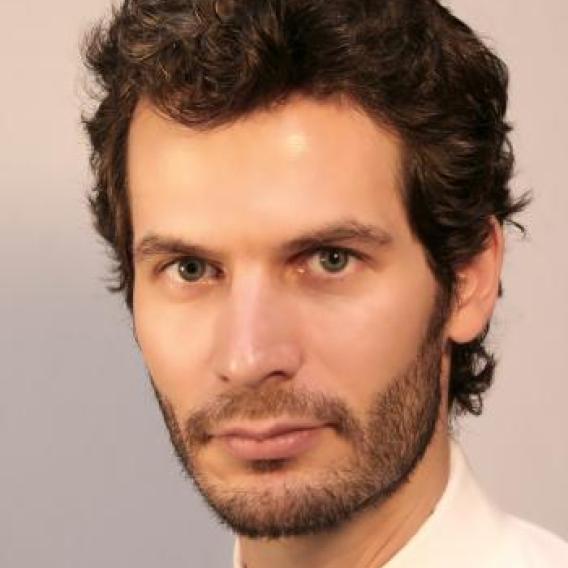Image

Emmanuel H During
Clinical Associate Professor, Neurology & Neurological Sciences
Member, Wu Tsai Neurosciences Institute
Fellowship, Stanford University, Sleep Medicine (2016)
Residency, Cedars-Sinai Medical Center, CA, Neurology (2015)
Internship, Banner Good Samaritan Hospital, AZ, Internal Medicine (2012)
Board Certification, Psychiatry, Paris Diderot University, France (2008)
MD, Louis Pasteur University, Medical School, France (2003)
Affiliation:
Committee:
Emmanuel During, MD, is a psychiatrist and neurologist with board certification in sleep medicine, Clinical Associate Professor at Stanford University in the Department of Psychiatry – Division of Sleep Medicine, and Department of Neurology. He directs the Stanford Parasomnia Clinic where he evaluates the broad spectrum of parasomnias, including REM sleep behavior disorder (RBD, abnormal dream-enactment) and other parasomnias such as sleepwalking, sleep talking, sleep terrors and confusional arousals. Lying at the interface of psychiatry, neurology and sleep, the Parasomnia Clinic functions as a platform for high-level specialized clinical care and direct enrollment into clinical trials, particularly for patients with RBD, which in a number of cases is an early sign of neurodegeneration such as Parkinson's disease or dementia with Lewy bodies.
Dr. During is receiving federal and industry grant support for conducting research on RBD. He is currently the PI of an investigator-initiated sponsored trial investigating a new drug in treatment-refractory RBD (NCT04006925), and serves as site PI for a NIA grant supporting a nation-wide consortium, the North American Prodromal Synucleinopathy Consortium (NAPS), laying the groundwork for a first neuroprotective trial in the pre-Parkinson's stage of RBD, (NCT03623672). In 2018, he was invited to join a task force group of experts in RBD commissioned by the American Academy of Sleep Medicine (AASM) to issue the upcoming 2022 Clinical Guidelines for the management of RBD. He was invited the same year to join the International RBD Study Group (IRBD-SG), a group of world-experts in RBD ranging from clinicians to basic scientists. His most recent research interest pertains to wearable sleep devices that can potentially monitor RBD activity in patients home environment and facilitate early diagnosis.
Dr. During is receiving federal and industry grant support for conducting research on RBD. He is currently the PI of an investigator-initiated sponsored trial investigating a new drug in treatment-refractory RBD (NCT04006925), and serves as site PI for a NIA grant supporting a nation-wide consortium, the North American Prodromal Synucleinopathy Consortium (NAPS), laying the groundwork for a first neuroprotective trial in the pre-Parkinson's stage of RBD, (NCT03623672). In 2018, he was invited to join a task force group of experts in RBD commissioned by the American Academy of Sleep Medicine (AASM) to issue the upcoming 2022 Clinical Guidelines for the management of RBD. He was invited the same year to join the International RBD Study Group (IRBD-SG), a group of world-experts in RBD ranging from clinicians to basic scientists. His most recent research interest pertains to wearable sleep devices that can potentially monitor RBD activity in patients home environment and facilitate early diagnosis.